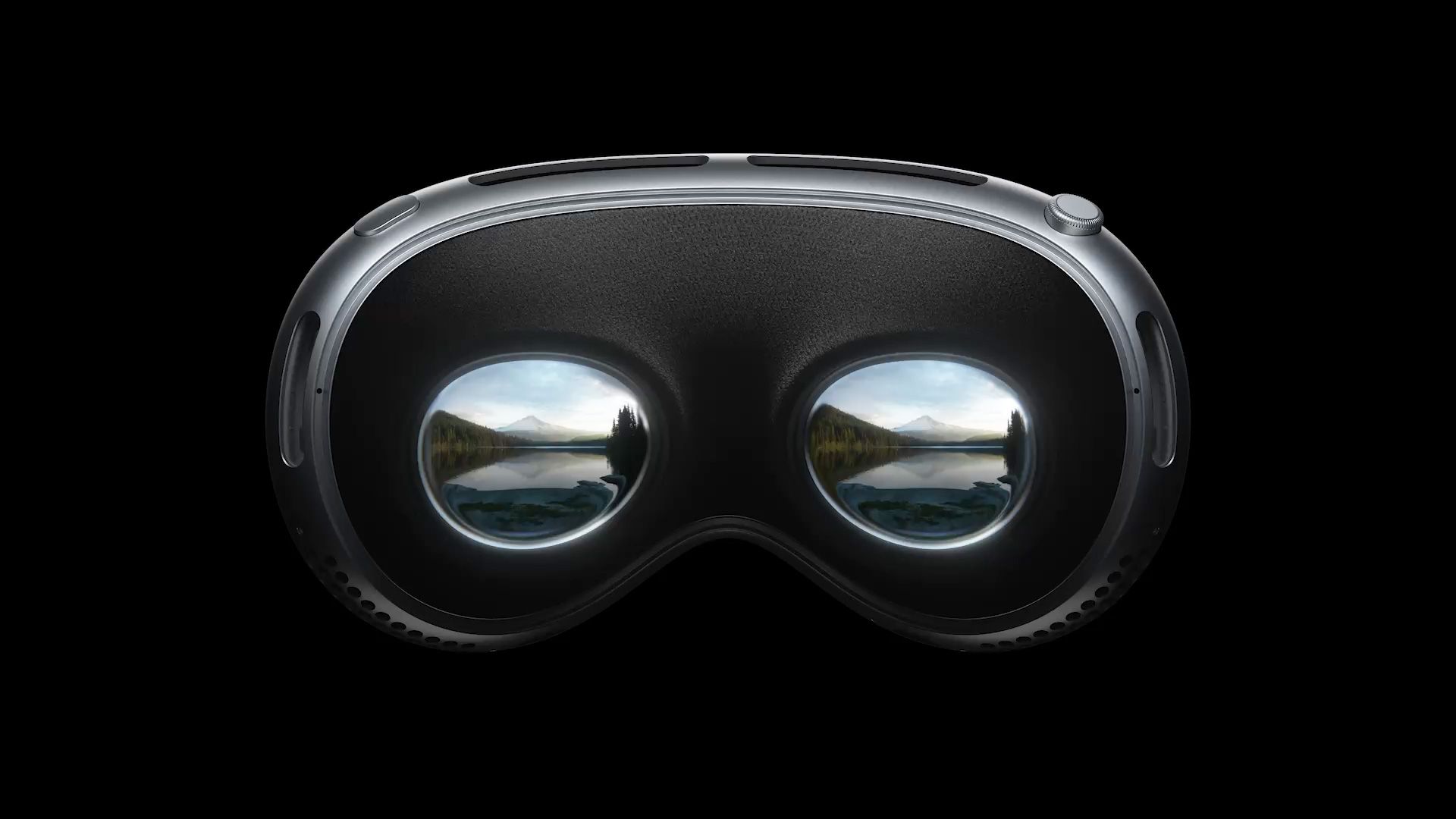Apple's Future Vision, Ratings Inflation, SMB SaaS Sprawl

Vision Pro 'Feels Like the Future'
Whether or not Apple's Vision Pro actually sells next year or is succeeded by more affordable headsets, it appears Apple has indeed sown the seeds of the next computing paradigm. After the keynote Monday Apple allowed a number of tech journalists (we were not among them) to wear and try out Vision Pro. Putting aside the price and "ski mask" complaints, without exception they said this was the best AR/VR headset ever produced and well beyond Meta's gear (e.g., here, here, here, here, here). Stratechery gushed, "It feels like the future." It's not the headset per se but its constituent technologies and elements, combining precise eye tracking (cursor), gesture controls (mouse), voice dictation and other technical feats, that herald the future of computing. Apple has elegantly laid the groundwork for the post-smartphone era, whether or not this specific headset is a commercial success.

Our take:
- The technical advancements in Vision Pro will be used in multiple ways in future hardware/software, and will inspire Apple competitors as well.
- The specific success or failure of this headset is now less interesting than what it has potentially made possible in the future.
- Meta's VR vision of the metaverse is dead; Apple's vision of the combination of digital and IRL is likely to prevail.
Ratings Becoming Meaningless
On Uber, Lyft and AirBnB, customer ratings are consistently high – between 4.7 and 5 stars. The Wall Street Journal attributes this to customers not wanting to hurt someone's livelihood and platforms nudging people toward higher ratings with "want went wrong?" surveys. Everyone in the review ecosystem is highly sensitive and now perceives anything less than between 4 - 5 stars as a form of failure. (In fact, many consumers won't consider a business with less than a 4+ star rating.) The WSJ concludes, "Ratings have become almost meaningless." Indeed, ratings over time have become less reliable as review inflation and fraud have proliferated. Although more than 90% of consumers continue to rely on reviews trust has declined, which may be partly behind the rise of TikTok as an alternative discovery tool for GenZ. In 2022, Google implemented a new AI-based review filter, which has been more aggressive against fraud but also caused myriad problems with unjustified review removals.

Our take:
- The fake reviews problem is now partly being addressed, after historical indifference and/or resistance by most of the platforms.
- What's harder to address is a culture of review inflation. It's not fraud but something like creeping mediocrity.
- Aggressive review solicitation has also contributed to this situation. Bottom line: reviews continue to lose credibility and value.
SMB SaaS Sprawl
At a company where I previously worked multiple teams relied on different collaboration tools: Asana, Jira, Airtable, Trello, Google Docs. This created inefficiency and frustration. This problem of "SaaS sprawl" is apparently widespread among small and medium-sized businesses, according to a survey from Capterra. The software review and lead-gen site said that 67% of surveyed SMBs are dealing with some degree of SaaS/app sprawl, meaning too many applications, some of which are unused or redundant. The survey findings reveal considerable waste in the system. The main explanation for the adoption of redundant apps is employee preferences (vs. client needs); one group prefers tool X and another likes tool Y. According to the survey, more than half (51%) of marketing apps are redundant and 40% aren't being regularly used (daily, weekly). Beyond this, 39% of respondents said their companies are wasting more than $43K annually on duplicative software. The survey also found it took 4 to 12 months to get rid of redundant and underutilized applications.

Our take:
- The survey was imprecise and small: 193 marketing professionals in companies from 1 to 1000 employees, with revenues up to $500 million.
- Still, the phenomenon is very real: too many tools, which require training and investment and many people don't wind up using.
- Practical recommendations: limit who can request/vet new software, invest in training and integration, conduct regular usage audits.
Recent Analysis
- Apple Vision Pro: Technical Marvel with WTF Pricing, by Greg Sterling
- Near Memo Unbounce Edition: Interview with CPO Darby Sieben.
Short Takes
- Optimizing content for Google's new "perspectives."
- Informal poll: SEOs mostly unimpressed with Google SGE.
- SEO: The Why and the How of FAQs.
- Only verified ads can run on Microsoft's network after August 1.
- Apple's rapid chip development is unprecedented.
- Instagram testing AI chatbot that "gives advice."
- Google image generation for Slides now available.
- Artifact to use AI to rewrite clickbait news headlines.
- Apple buys AR headset startup Mira for undisclosed amount.
- Marc Andreessen: AI could actually save the world.
- Job quitting returns to pre-pandemic "normal" levels.
- Meta tests blocking news in Canada in response to journo support law.
- Social media gives up on policing election disinformation.
- Watch "The Frost," a credible 12-minute AI-generated movie.
Listen to our latest podcast.

How can we make this better? Email us with suggestions and recommendations.

